Interview: Dean Wesley Smith on “How to Write a Novel in Ten Days”
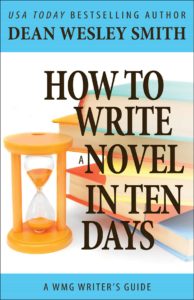
 How to Write a Novel in Ten Days is in the NaNoWriMo Writing Tools bundle, a collection of a dozen books on writing. A portion of the proceeds goes directly to the Challenger Center for Space Science Education, a non-profit group created by the families of the crew of the Challenger shuttle. This bundle is only available through the end of November 2018.
How to Write a Novel in Ten Days is in the NaNoWriMo Writing Tools bundle, a collection of a dozen books on writing. A portion of the proceeds goes directly to the Challenger Center for Space Science Education, a non-profit group created by the families of the crew of the Challenger shuttle. This bundle is only available through the end of November 2018.
Meet Dean!
Dean has written over two hundred novels, and hundreds and hundreds of short stories. In addition to his many original novels, he’s also written film novelizations, Star Trek novels, and has ghostwritten a number of other books. He’s the editor of Pulphouse Fiction Magazine, and is one of the executive editors for the original anthology series Fiction River.
How to Write a Novel in Ten Days
Even in today’s fast-paced world, the myth that writing fast equals writing badly—or, conversely, writing well equals writing slowly—persists. Now, USA Today bestselling author Dean Wesley Smith aims to shatter this myth once and for all with this latest WMG Writer’s Guide.
In a series of blog posts, Smith chronicled his process toward ghost writing a 70,000-word novel for a traditional publisher in just ten days. He wrote about his progress, his feelings about the writing, and how he approached and overcame obstacles. This book takes readers on a journey that demonstrates that writing fast, and writing well, comes from motivation and practice.
Excerpt
This book is pretty easy to explain. It is simply a series of twelve blog posts, one per day, that I did over a stretch of 12 days just under a year ago. The point of the blogs was to detail out a novel I wrote for a traditional publisher in ten days. I had one post ahead of the writing days and one after I finished the book to wrap up.
All twelve are here.
Now granted, as each day went on, I added to the post, and at the end of the day I did a summary on each post. So if you were following this (as thousands were on my web site hour-by-hour), you would see each post grow as each day went on.
The goal of doing the blogs was to help take out the mystery of “writing” fast and show how it can be done easily. You just spend the time. Writing fast is not typing fast, it’s just sitting in the chair and writing for numbers of hours.
A little background: I have written and sold over a hundred novels to traditional publishers over the last twenty-five years. Some years I wrote a great deal, some years I took off during those twenty-five years and wrote no books. But after a hundred plus novels, I know how to write a novel.
I wrote this into the dark, as some writers call this type of writing. In other words, I had no outline. And the novel was published by the publisher with no rewrites from me.
I have left all the blog posts pretty much as I wrote them here in this book, because I felt that would be the best way to detail out the feeling of those ten days.
So I hope this journey through the daily writing process of a novel by a professional novelist is fun and entertaining and enlightening.
I had fun detailing out the process as well.
Enjoy the journey and have fun with your own writing.
– from How to Write a Novel in Ten Days by Dean Wesley Smith
The Interview
Why did you decide to write a novel in ten days?
Honestly, it was a ghost project and they needed it quickly, then delayed the payment and I never start writing until I have the contract and first payment. Learned that lesson the hard way early on. So by the time the payment got there, I had moved on and just wanted this out of my hair.
You wrote this book as a way to document your experience ghostwriting a ~70,000 word novel in ten days. Was this an unusual amount of writing for you in this type of time period?
Nope, not at all. About normal for me when I am writing to be honest. I am not a fast typist, so I manage about 1,000 words per hour. For something like this it just means I actually write for more hours is all. Nothing magical at all. I am prolific and fast because I spend more time in my writing chair than others do.
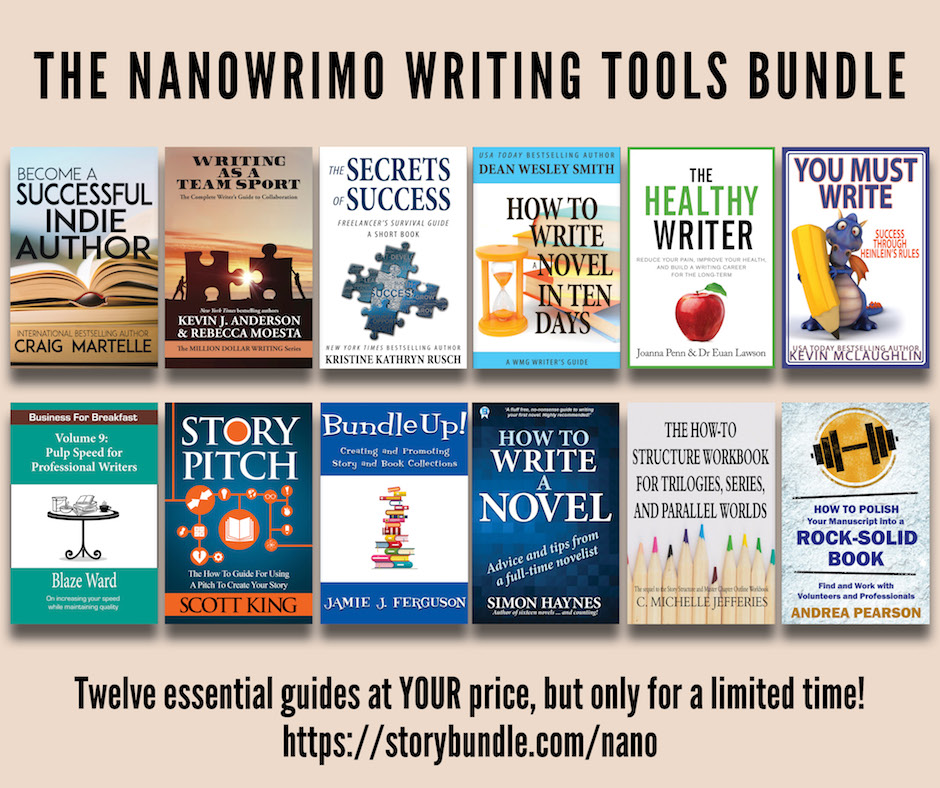
You write “into the dark,” meaning you don’t create outlines, but instead just sit down and start writing? What type of plan did you have when you started the novel? Without an outline, how did you know the result would come in around the required 70,000 words?
After a hundred novels or so, you tend to know how long a novel will be as you go along, even though you have no idea where the book is going. Just practice, I guess. And a sense of the pacing of the book. A shorter novel has a different form of pacing.
If you could go back in time to when you started writing, and could give your younger self one piece of advice, what would that be?
Follow Heinlein’s Rules much sooner and never fall off of them for any reason.
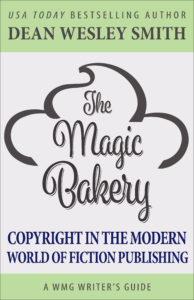 What is the “magic bakery?”
What is the “magic bakery?”
A metaphor to understand copyright. Most writers don’t have a clue about copyright and what they license. The magic bakery metaphor makes it easy to understand and real.
Your Thunder Mountain novel series combines time travel and the Old West. What inspired this series, and what do you enjoy about writing it?
I have always loved and written time travel, and my families on both sides were pioneers into the Pacific Northwest way, way back. And as a kid my grandparents would take me to old ghost mining towns and tell me what they were like when people lived in them. Also, on one trip into old mining country when I was an early teenager, a friend of mine and I went into an old gold mine (really stupid) and found a bunch of crystals. So that experience and my love of the Old West and time travel just sort of came together. I am working on a new Thunder Mountain book at the moment, actually.
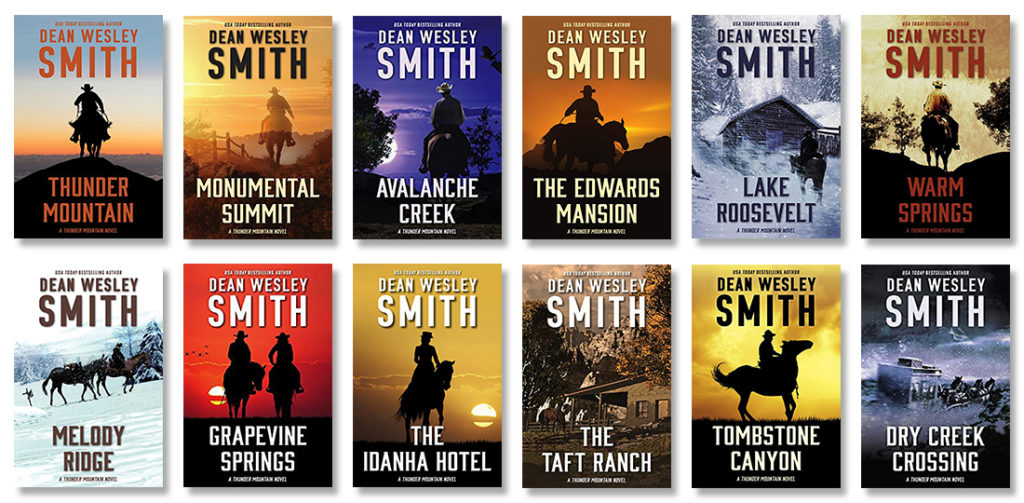
You and your wife, Kristine Kathryn Rusch, have taught writing workshops for decades, and every year you offer new online classes. What do you enjoy about this?
The learning. It challenges us both to figure out ways to teach a topic and then I keep learning from the writers taking the workshops as well. We would stop them in a heartbeat if I wasn’t still learning and hungry for the knowledge.
Pulphouse Fiction Magazine is a reincarnation of a magazine you and Kris offered through the small press Pulphouse Publishing from 1988 through 1993. Why did you decide to bring the magazine back after a twenty year absence? What’s different this time around?
Not much, actually. Crazy, fun stories that are high quality and make people think. What we were trying to do back in the early 1990s. And I thought it would be fun, which after a year, it has been great.

Your Cold Poker Gang Mystery series is focused around a group of retired Las Vegas police detectives playing poker and solving cold cases. Has what you write for this series since you moved to Vegas? And how does your own expertise as a poker player help with these books?
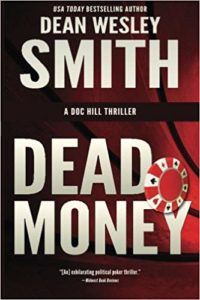 No poker in the books. The idea was a spin-off of a thriller I wrote called “Dead Money” which was about poker. Nothing has changed since I moved to Las Vegas because I haven’t written a new one here. Plus I really knew Las Vegas before I moved here, so can’t imagine anything changing. I love writing those mysteries. They are so much fun.
No poker in the books. The idea was a spin-off of a thriller I wrote called “Dead Money” which was about poker. Nothing has changed since I moved to Las Vegas because I haven’t written a new one here. Plus I really knew Las Vegas before I moved here, so can’t imagine anything changing. I love writing those mysteries. They are so much fun.
What story (or stories) are you working on now, and what’s fun about what you’re writing?
Working at the moment on a new Thunder Mountain novel. Not sure after that since I never know what I will write until I sit down and start writing. I just like entertaining myself. Figure if I do that, others might like it as well.
About Dean
Considered one of the most prolific writers working in modern fiction, USA Today bestselling writer Dean Wesley Smith published far more than a hundred novels in forty years, and hundreds of short stories across many genres.
At the moment he produces novels in four major series, including the time travel Thunder Mountain novels set in the Old West, the galaxy-spanning Seeders Universe series, the urban fantasy Ghost of a Chance series, and a superhero series starring Poker Boy.
His monthly magazine, Smith’s Monthly, which consists of only his own fiction, premiered in October 2013 and offers readers more than 70,000 words per issue, including a new and original novel every month.
During his career, Dean also wrote a couple dozen Star Trek novels, the only two original Men in Black novels, Spider-Man and X-Men novels, plus novels set in gaming and television worlds. Writing with his wife Kristine Kathryn Rusch under the name Kathryn Wesley, he wrote the novel for the NBC miniseries The Tenth Kingdom and other books for Hallmark Hall of Fame movies.
He wrote novels under dozens of pen names in the worlds of comic books and movies, including novelizations of almost a dozen films, from The Final Fantasy to Steel to Rundown.
Dean also worked as a fiction editor off and on, starting at Pulphouse Publishing, then at VB Tech Journal, then Pocket Books, and now at WMG Publishing, where he and Kristine Kathryn Rusch serve as series editors for the acclaimed Fiction River anthology series.
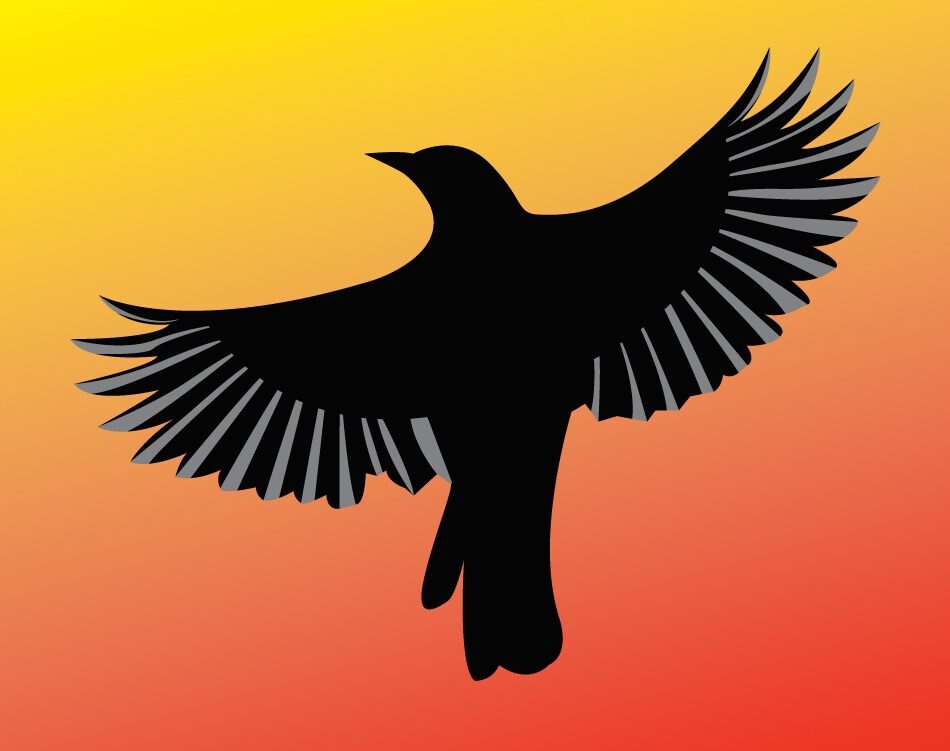
One Comment
Comments are closed.